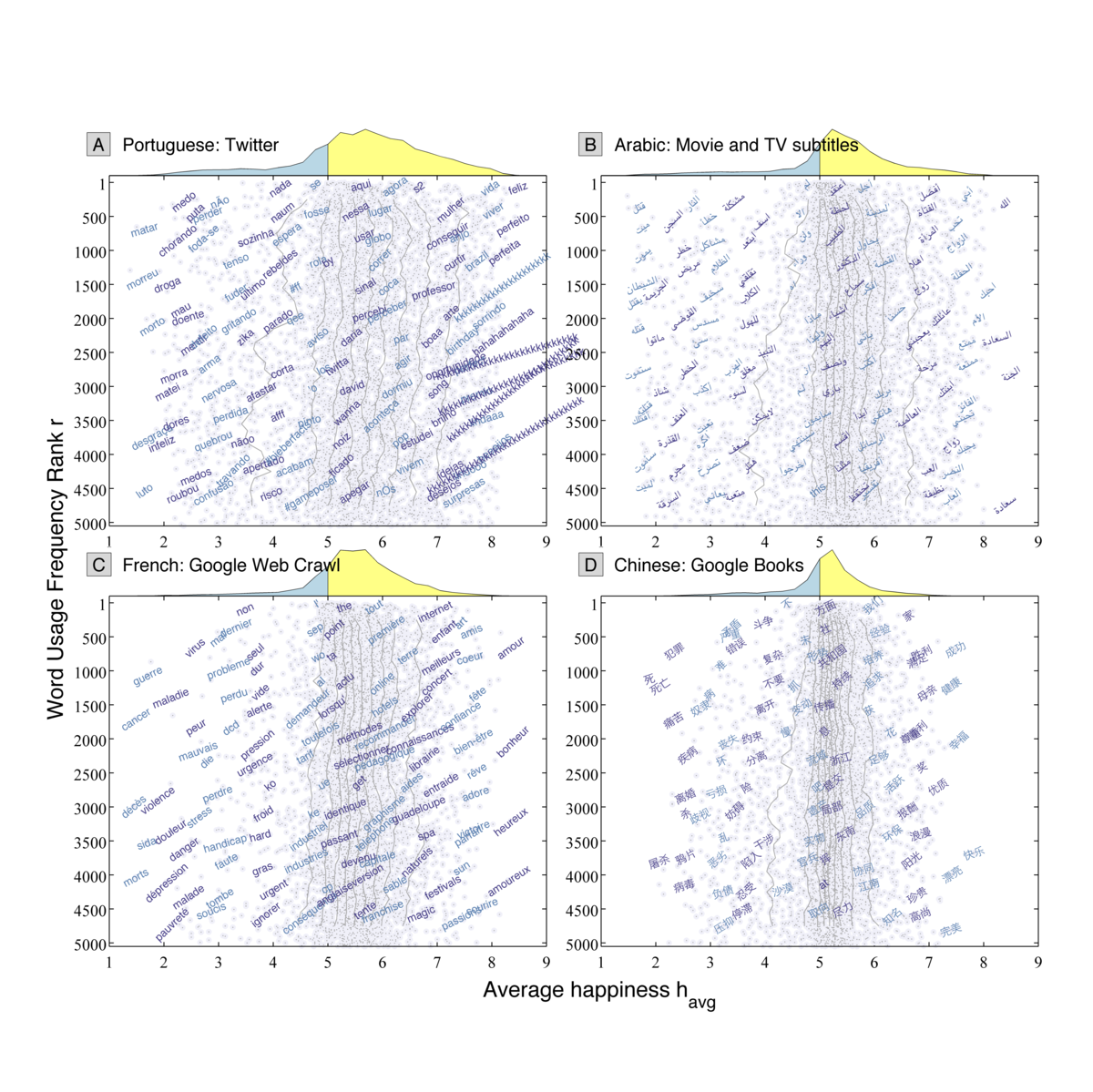Human language reveals a universal positivity bias
P. S. Dodds, E. M. Clark, S. Desu, M. R. Frank, A. J. Reagan, J. R. Williams, L. Mitchell, K. D. Harris, I. M. Kloumann, J. P. Bagrow, K. Megerdoomian, M. T. McMahon, B. F. Tivnan, and C. M. Danforth
Proceedings of the National Academy of Sciences, 112, 2389–2394, 2015

Times cited: 545
Abstract:
Using human evaluation of 100,000 words spread across 24 corpora in 10 languages diverse in origin and culture, we present evidence of a deep imprint of human sociality in language, observing that (1) the words of natural human language possess a universal positivity bias; (2) the estimated emotional content of words is consistent between languages under translation; and (3) this positivity bias is strongly independent of frequency of word usage. Alongside these general regularities, we describe inter-language variations in the emotional spectrum of languages which allow us to rank corpora. We also show how our word evaluations can be used to construct physical-like instruments for both real-time and offline measurement of the emotional content of large-scale texts.
- This is the default HTML.
- You can replace it with your own.
- Include your own code without the HTML, Head, or Body tags.
BibTeX:
@article{dodds2015a,
author = {Dodds, P. S. and Clark, E. M. and Desu, S. and
Frank, M. R. and Reagan, A. J. and Williams,
J. R. and Mitchell, L. and Harris, K. D. and
Kloumann, I. M. and Bagrow, J. P. and Megerdoomian,
K. and McMahon, M. T. and Tivnan, B. F. and
Danforth, C. M.},
title = {Human language reveals a universal positivity bias},
journal = {Proc. Natl. Acad. Sci.},
year = {2015},
key = {language,happiness},
volume = {112},
number = {8},
pages = {2389–2394},
note = {Available online at
\url{http://www.pnas.org/content/112/8/2389}},
}